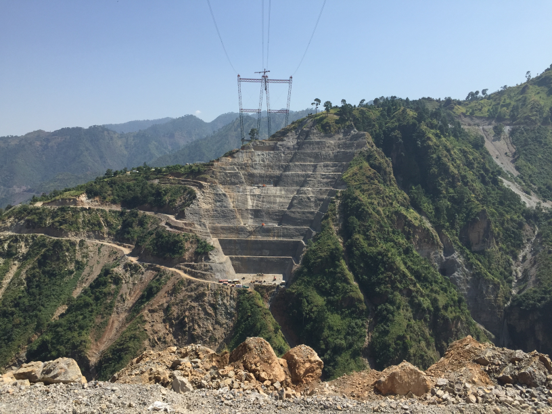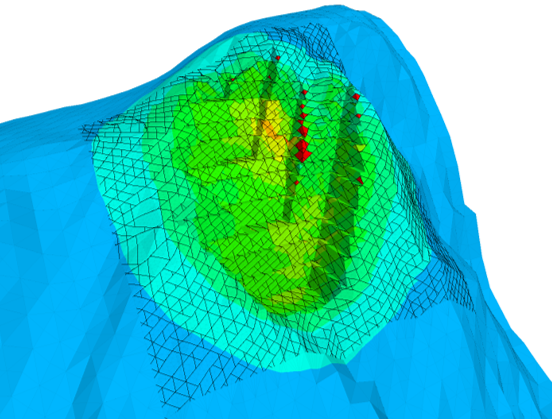Chenab Railway Bridge Abutments
Project Description
The Udhampur-Srinagar-Baramulla Rail Link (USBRL) project is a railway line linking the Kashmir Valley to the rest of India through the Himalayas. At 110 km long, this section consists of 88 km through tunnels and 11 km over bridges and viaducts.
The Chenab River Bridge will be a concrete-filled truss steel arch bridge 359 m above the river valley, with a main span of 467 m and a total length of 1,315 m, making it the highest bridge deck and the seventh-longest spanning arch bridge in the world. The Chenab River valley has very steep slopes of generally good quality rock, but which are highly fractured. The arch abutments consist mainly of dolomite with a bedding plane and two other dominant joint sets. Overall stability of the slopes (on both banks), and particularly deformation and stability of the arch abutments and pillar foundations, will have an important effect on performance of the bridge after construction.
Itasca's Role
Itasca reviewed the existing site characterization data, developed a representative fracture network model and an anisotropic material model for the foliated rock mass, and reviewed the seismic hazard analysis and provided ground motions. Calibrated 3DEC models were developed to analyze both the abutments, including loads from pillar foundations for both static and dynamic conditions. An equivalent continuum model of the entire valley was also analyzed for dynamic conditions to determine relative displacements between adjacent foundations during seismic shaking.
Project Results
Itasca was able to explicitly model the complex jointed rock system along with ground support. Based on the results of the analyses, Itasca was able to identify any problematic areas including potential wedge sizes and recommend if additional (compared to the design) ground support measures were necessary.
Project Image(s)



